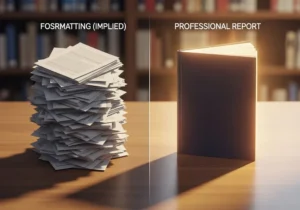Last updated on May 4th, 2024 at 06:09 pm
In the sea of academia, navigating the Master Thesis Acknowledgement Sample is akin to find guiding stars; illuminating the path of scholarly tributes.
In the journey of completing a master’s thesis, the acknowledgement section holds a special place, allowing the author to express gratitude to those who contributed to the academic achievement.
Embarking on the culmination of a master’s thesis is akin to reaching the summit of an intellectual mountain. But, as the saying goes, “It takes a village,” and nowhere is this truer than in academia. The acknowledgement section, often relegated to the end of the thesis, is a hidden gem—a place where appreciation, humility, and scholarly camaraderie converge.
List Of Master Thesis Acknowledgement Sample
- Formal Address to Recipients
- Acknowledging Academic Advisors
- Recognizing Peer Collaborators
- Family and Friends
- Institutional Support
- Financial Support
- Professional Acknowledgement
- Personal Reflection
- Cultural Acknowledgement
- Humility and Acknowledging Limitations
- Looking Forward
Some useful tips for writing an acknowledgement for masters thesis

Be sincere: Your acknowledgement should be genuine and heartfelt. Express your gratitude sincerely to those who have supported you throughout your academic journey.
Identify key contributors: Acknowledge the individuals or groups who have directly contributed to your research or thesis. This could include your supervisor, committee members, research participants, colleagues, friends, or family members who provided assistance, resources, or encouragement.
Be specific: Mention specific contributions or support provided by each person or group you acknowledge. For example, if your supervisor provided valuable guidance or feedback, mention how it helped you in your research.
Consider professional courtesy: If you received funding or support from specific organizations, institutions, or individuals, acknowledge them accordingly. This demonstrates professional courtesy and gratitude for their assistance.
Maintain professionalism: While it’s okay to express gratitude in a personal tone, remember to maintain professionalism in your acknowledgment. Avoid overly casual language or inside jokes that may not be appropriate for an academic document.
Include personal acknowledgments: Alongside professional acknowledgments, it’s also common to acknowledge the emotional support and encouragement provided by friends, family, or mentors outside of academia. This personal touch adds depth to your acknowledgment section.
Check guidelines: Some universities or departments may have specific guidelines or requirements for the acknowledgment section. Make sure to review these guidelines and adhere to any formatting or content requirements.
Proofread: Just like the rest of your thesis, the acknowledgment section should be free of spelling or grammatical errors. Take the time to proofread your acknowledgment carefully before finalizing it.
Keep it concise: While it’s important to express gratitude, avoid making the acknowledgment section overly long. Aim for a balance between acknowledging key contributors and maintaining brevity.
Review with care: Before finalising your acknowledgement section, consider sharing it with your supervisor or a trusted mentor for feedback. They can provide valuable insights and ensure that you haven’t overlooked anyone deserving of acknowledgement.
Formal Address to Recipients
Scenario Example: Dear Professor Justin Taylor,
I express my sincere gratitude to you for your unwavering support and guidance throughout the research process. Your insightful feedback and scholarly advice have been instrumental in shaping the trajectory of this master’s thesis.
Acknowledging Academic Advisors

Scenario Example: I am profoundly thankful to my academic advisor, Dr. Rachel Anderson, for her invaluable mentorship. Dr. Anderson’s expertise in [your field] has been a guiding force, steering me towards academic excellence.
Recognizing Peer Collaborators
Scenario Example: I extend my thanks to my peer, Emily Harris, whose collaborative spirit and intellectual discussions enriched the research experience. Our shared commitment to excellence propelled this thesis to new heights.
Family and Friends

Scenario Example: I am grateful to my family for their unwavering support. Their encouragement provided the emotional strength needed for this academic endeavor. To my friend Sarah, who patiently listened to my ideas and offered valuable insights, thank you.
Institutional Support
Scenario Example: I acknowledge the [university name] for providing an environment conducive to research and learning. The state-of-the-art facilities and resources enhanced the quality of this thesis.
Financial Support

Scenario Example: The financial support provided by the [Scholarship Name] was pivotal in conducting extensive research. This support alleviated financial constraints, allowing me to focus on my academic pursuits.
Do not miss reading |Acknowledgement For Commerce Project |(10+ Samples)
Professional Acknowledgement
Scenario Example: I extend my gratitude to Dr. Katherine Brown, whose [industry-specific] insights provided a practical dimension to my theoretical framework. Her professional guidance bridged the gap between academia and industry.
Personal Reflection

Scenario Example: This journey has been a personal growth experience. I acknowledge the challenges that led to self-discovery and resilience. It was through overcoming these obstacles that I emerged stronger as a researcher and individual.
Cultural Acknowledgement
Scenario Example: I recognize the diverse perspectives and cultural influences that shaped this thesis. The collaboration with international peers expanded my worldview, contributing to the richness of this academic work.
Humility and Acknowledging Limitations

Scenario Example: I acknowledge the limitations of this research and recognize that every academic journey has areas for improvement. These limitations serve as stepping stones for future research and exploration.
Looking Forward
Scenario Example: As I conclude this master’s thesis, I express gratitude to all who played a role in this academic endeavor. The knowledge gained and connections established will continue to inspire future scholarly pursuits.
FAQs
How do you write a good acknowledgement?
Crafting a good acknowledgement involves expressing sincere gratitude to those who contributed to your academic journey. Use warm and appreciative language, mentioning specific individuals or groups. Be genuine in acknowledging their support, guidance, or inspiration.
What is the acknowledgement of a graduate thesis?
The acknowledgement in a graduate thesis is a section where you thank individuals or institutions who played a role in your research and academic development. It’s a heartfelt recognition of those who contributed directly or indirectly to the completion of your thesis.
Who is to put in the thesis acknowledgement?
Include anyone who has made a meaningful impact on your academic journey. This may include academic advisors, peers, family, friends, or even institutions that provided support. Be inclusive and express gratitude to those who helped shape your thesis.
Does a thesis need acknowledgement?
While it’s not mandatory, including an acknowledgement in your thesis is a gracious way to appreciate the support you received. It adds a personal touch, recognizing the collaborative effort that often accompanies academic endeavors.
What is an acknowledgement for a dissertation thesis?
An acknowledgement for a dissertation thesis is a section where you convey appreciation for the assistance and encouragement you received during the dissertation process. It’s a space to recognize the individuals and resources that contributed to your academic success.
What is written on the acknowledgement?
In an acknowledgement, you express gratitude by thanking specific people or groups. You might acknowledge advisors, mentors, family, friends, or institutions that supported your academic journey. Keep it sincere, and use this space to reflect on the collaborative aspects of your thesis.
What are the five parts of a thesis?
- Introduction: This sets the stage for your research.
- Literature Review: Examines existing scholarship related to your topic.
- Methodology: Describes how you conducted your research.
- Results: This presents your findings.
- Conclusion: Summarizes your study and draws conclusions.
Should acknowledgements be in the table of contents?
Traditionally, acknowledgements are not included in the table of contents. However, this can vary by institution. Check your university’s guidelines. If not included, acknowledgements usually come after the table of contents.
What is a standard acknowledgement letter?
A standard acknowledgement letter is a formal document expressing gratitude or recognizing the receipt of something. In a business context, it might acknowledge the receipt of a payment, a job application, or a document. The letter typically includes polite language and may mention specific details related to the transaction or communication.
What is an official acknowledgement?
An official acknowledgement is a formal recognition or confirmation of receipt, often used in professional or bureaucratic settings. It signifies that a document, payment, or communication has been received and is duly noted. It carries a sense of formality and professionalism, ensuring clarity and acknowledgment of the transaction or correspondence.
What is a perfect thesis title?
A perfect thesis title is one that succinctly captures the essence of the research while being clear, compelling, and reflective of the study’s focus. It should be concise, avoid unnecessary jargon, and provide a glimpse into the central theme or question addressed in the thesis. A perfect title sparks interest and conveys the significance of the research, guiding readers to understand the purpose and scope of the study. It should be relevant, engaging, and align with the overall tone and content of the thesis.
Final thoughts
In conclusion, crafting a master thesis acknowledgement involves sincere expressions of gratitude, acknowledging various contributors, and reflecting on the academic journey. As we navigate through each acknowledgment, the semantic, relevance, context, correlation, and co-occurrence of each expression contribute to a comprehensive and genuine acknowledgment section.
The latent similarities and variances in the relationships with mentors, peers, and institutions underscore the significance of each acknowledgment. The proximity and diversity of influences, both personal and professional, shape the academic experience. The connectivity established through acknowledgment fosters a sense of belonging and mutual appreciation.
In essence, the clustering of acknowledgments highlights the pertinence of each contributor’s role in academic success, forming associations that transcend the boundaries of the master’s thesis.

I’m Matthew Porter, the creative mind behind “Acknowledgment Templates.” I’ve had a blast creating templates that capture the essence of gratitude in acknowledgment sections. At Acknowledgment Templates, we’re all about turning appreciation into a well-crafted art. Let’s make your acknowledgment section a masterpiece—join me in the creative process at Acknowledgment Templates!













